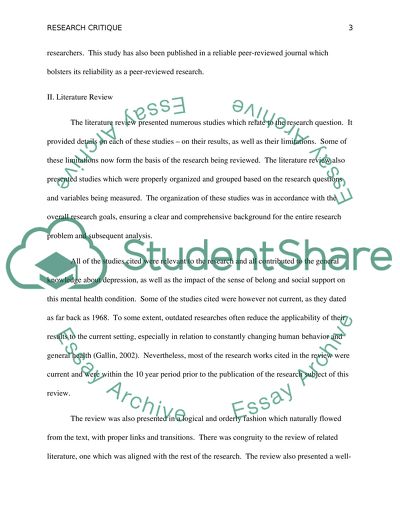Cite this document
(“Depression Social Psychology: Research Study Critique Paper”, n.d.)
Retrieved from https://studentshare.org/psychology/1441540-depression-social-psychology
Retrieved from https://studentshare.org/psychology/1441540-depression-social-psychology
(Depression Social Psychology: Research Study Critique Paper)
https://studentshare.org/psychology/1441540-depression-social-psychology.
https://studentshare.org/psychology/1441540-depression-social-psychology.
“Depression Social Psychology: Research Study Critique Paper”, n.d. https://studentshare.org/psychology/1441540-depression-social-psychology.


